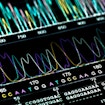The NeuroDev study seeks to expand knowledge of the genetic architecture of etiologically related neurodevelopmental disorders — particularly ASDs, intellectual disability and ADHD — in Africa through large-scale sample collection, analysis and participant follow-up. Over the next four years (2018–2022), Elise Robinson, in collaboration with Charles Newton, Kirsty Donald and Amina Abubakar, will develop the initial NeuroDev collection of genotyping and exome-sequencing data of 1,800 children with neurodevelopmental disorders in South Africa and Kenya, 1,800 ancestry matched child controls and 1,900 parents. All NeuroDev materials and results will be made available as a resource for the scientific community.



